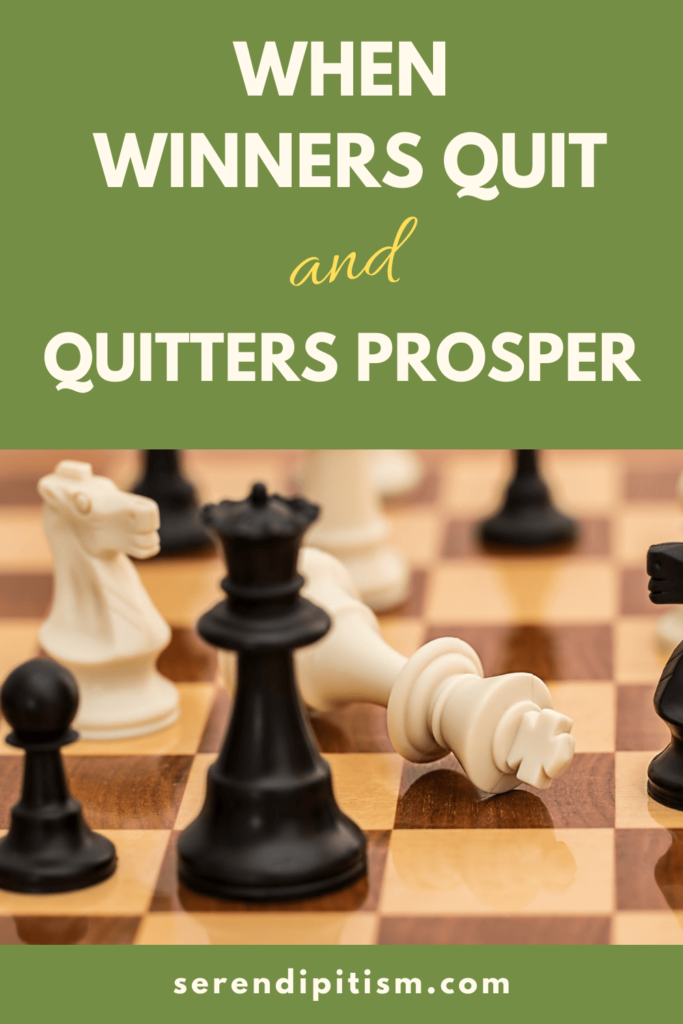
Back when Warren Buffett’s net worth was a mere $10,000, he sank 20 percent of it into a Sinclair service station in Omaha. Unfortunately, it was across the street from a well-established Texaco station with very loyal customers, and Buffett’s station simply could not compete.
Bill Gates’ and Paul Allen’s first entrepreneurial collaboration was a machine that automated vehicle traffic data collection. It worked, and they attracted some paying municipal clients. Soon, though, states began freely providing their traffic data to local governments, obliterating the now-famous duo’s business model.
Mark Cuban once had the idea that since powdered milk was cheaper by the gallon than regular milk – and, in his opinion, tasted just as good – it would be a booming business and his big break. It wasn’t.
Today, we don’t associate Warren Buffet with gas stations, or Bill Gates and Paul Allen with traffic data, or Mark Cuban with powdered milk.
Why? Because they realized the futility of these early endeavors and wisely applied their time and energy elsewhere.
Successful entrepreneurs are usually lauded for their perseverance and resilience, but they also know when to quit. They never give up on their overall pursuit of success, but they don’t foolishly stick with a losing venture when it is clearly time to move on.
Quitting doesn’t always mean failing
Maxims such as “quitters never win and winners never quit,” “quitters never prosper,” and “nobody likes a quitter” are fundamental to the Western capitalist psyche. Unfortunately, the preponderance of expressions like these in our shared knowledge reservoir has led people to automatically equate quitting with failing.
Popular culture has conditioned us to believe that persistence brings success and that to quit is to fail.
Buffett, Gates, Allen, and Cuban all quit failing ventures, but history will not determine them to be quitters or failures. They didn’t give up their dreams. They simply quit what wasn’t working. They quit doomed ventures that were clearly not going to get them where they wanted to go.
Quitting something that isn’t working doesn’t make you “a quitter” any more than trying something and not excelling makes you “a failure.” Nonetheless, our reluctance to quit things – even when they are not going well or show little future benefit – can often be linked directly to our fear of failure.
The truth is, though, that when our aspirations become unrealistic it can be harmful to doggedly pursue our unattainable goal. The inability to make continued progress toward a goal can cause psychological distress and depression.[1]
Disengaging from unattainable goals can prevent the harm to our psyche caused by repeated goal failure. It also frees resources that we can direct toward alternative actions, such as reengaging with different goals that increase purpose and promote our future development.[2]
Abandoning a goal that once seemed desirable but has now become impractical – and replacing it with a more appropriate and attainable goal – can improve our emotional well-being and help us stay on track toward our long-term vision.
You don’t have to remain committed to a past decision. Circumstances may have changed significantly since then, and what seemed like an advantageous course of action at the time may no longer make sense.
Sunk cost and opportunity cost
Sunk costs are the total effort, energy, time, money, and other resources you’ve already invested in an endeavor and can no longer recover. We fall victim to the sunk cost fallacy when we continue to pursue a suboptimal trajectory for no better reason than that we’re already significantly invested.
It is highly irrational to use irrecoverable costs to justify the commitment of more resources to a project. If the expended resources are gone, the only thing that should affect our current decision is the projected future costs and benefits.
Young Warren Buffett was heavily invested in his Sinclair station in Omaha. He’d invested 20 percent of his net worth. He’d even worked weekends running the register, pumping gas, and washing people’s windshields. But when he saw that he was getting his socks beat off by the Texaco station across the street, he didn’t continue to plow more money and time into his lagging enterprise.
He quit. He got out. He invested his money elsewhere. He realized that all the money and sweat equity he had lost in the gas station was irrecoverable. He knew that he had a better chance of at least recouping some of his financial losses somewhere else, rather than continuing to hemorrhage money trying to beat a superior competitor.
Just as importantly, he realized that all the effort he was putting into the gas station could be applied to more fruitful activity. Every dollar and every hour spent on the failing venture was a dollar and an hour that wasn’t being used to exploit a better opportunity.
As Buffett said, “Should you find yourself in a chronically leaking boat, energy devoted to changing vessels is likely to be more productive than energy devoted to patching leaks.”
Opportunity cost refers to the loss of benefit that we could have realized had we made a different choice.
Sometimes opportunity cost is easily quantifiable and can be calculated. For example, let’s say we choose to invest in Stock A instead of Stock B. If we lose $200 on Stock A, and Stock B would have made us a $400 profit over the same period, then our opportunity cost was $600.
Other times, though, opportunity cost isn’t so straightforward. If a student is accepted to two Ivy League schools, it can be very difficult to determine which one might present the best opportunity and ultimately provide the greatest long-term benefit. Either one is likely to be very rewarding, but there are still a lot of factors to consider before making the choice.
Also, opportunity cost information isn’t always available when we need it. For example, it’s not always possible to forecast the actual benefit value of an alternative choice. Additionally, factors such as failure to understand the relevance of opportunity costs, our own risk aversion, and environmental changes and incentives can cause us to overweight or underweight opportunity costs.[3]
However, when we find ourselves in situations where we can clearly see greater benefit by choosing an alternative course of action to the one we are already taking, then quitting becomes the most rational option.
Questions to ask yourself before quitting
We are conditioned to have a bias toward sticking things out and honoring our commitments. Persistence, we are told, is one of the keys to success. Popular culture regales us with tales of wealthy people who refused to give up on their dream.
But we are usually just told about someone’s stunning success. The thing that worked. The thing they were right about. Unless we dig a little, we don’t always hear about the things that didn’t work. The things they were wrong about. The things they quit before they found the trajectory that fit them best.
So, we focus more on how to remain persistent and resilient, instead of how to rationally consider whether persisting is really worth it.
When we start to see telltale signs that we might be headed down the wrong path – even if that path seemed right at first – there are some questions we can ask ourselves to help decide whether quitting might be strategically favorable:
- Do I still care about this?
- Is this goal still realistically attainable?
- Does this endeavor still promise the same reward that it did when I started?
- If obtaining the reward still seems realistic, is it worth the suffering I am enduring now?
- Do I have information now that I didn’t have when I started that makes this venture less promising?
- Is this trajectory preventing me from pursuing better opportunities?
- Am I sticking with this mainly because I’m worried about what others might think or say if I quit?
- Would I be more motivated and committed if I chose a different path?
- Would a different trajectory be a better fit for me?
- If a friend were in the exact same situation, what advice would I give them?
- Will I feel relief if I quit?
- Am I happy?
We probably shouldn’t quit things on a whim, or simply because we encountered a frustrating obstacle. But there are times when quitting is a valid alternative, or even the best alternative.
When we are pondering whether or not to quit, we can use questions like the ones above to help us make a reasoned – rather than a reactive – choice. If we know we considered the pros and cons, the alternative courses of action, and our own motivations, we will have more confidence in our decision to quit (or to stick).
Specifying quit conditions
Successful people haven’t deftly managed to avoid failure in life. Instead, they’ve developed highly adaptive responses to failure so that inevitable setbacks don’t defeat them.
Similarly, successful people aren’t necessarily the types of people who “refuse to quit, no matter what.” Instead, they have developed cognitive strategies that tell them when and why quitting is the best option.
One such strategy is to have a specified set of conditions that, if met, will signal that it might be time to quit. These should be defined when starting any new venture. This can save a lot of stress and second-guessing should things start to go south. It’s simple and clear. If the conditions are met, it’s okay to quit.
Often, these parameters involve quantifiable factors such as time, money, and effort. These factors can be objectively measured. Other factors, though, will require more subjective metrics. If the venture is causing you stress and anxiety, you are losing sleep, and your relationships are suffering, you may want to consider quitting.
Even if your quit conditions are met, however, it doesn’t mean you have to quit. It just means it’s time to reassess everything.
Most undertakings are dynamic and fluid, and what seemed easily doable when you started may seem impossible six months in. Conversely, sometimes we catch a few breaks, and the projected rewards are bigger and come sooner than we originally thought.
If you have a set of predefined quit conditions, you will avoid talking yourself into bailing too soon in reaction to unanticipated obstacles or less-than-expected results. You can remain confidently committed unless your conditions are met.
Samuel Johnson once wrote, “He that will enjoy the brightness of sunshine, must quit the coolness of the shade.”
Sometimes winners quit before they eventually prosper. Sometimes successful people quit something bad for something good, or even something good for something better.
The important thing is to prepare yourself for the reality that quitting may eventually be the right thing to do, and to define the conditions for quitting so that you do it with confidence and on your own terms.

